Jakpost guide to Pasar Modern Bintaro
Pasar Modern Bintaro is a neatly organized traditional farmers' market-style shopping complex and culinary center that offers a wide range of traditional Indonesian foods from different regions.
Change Size
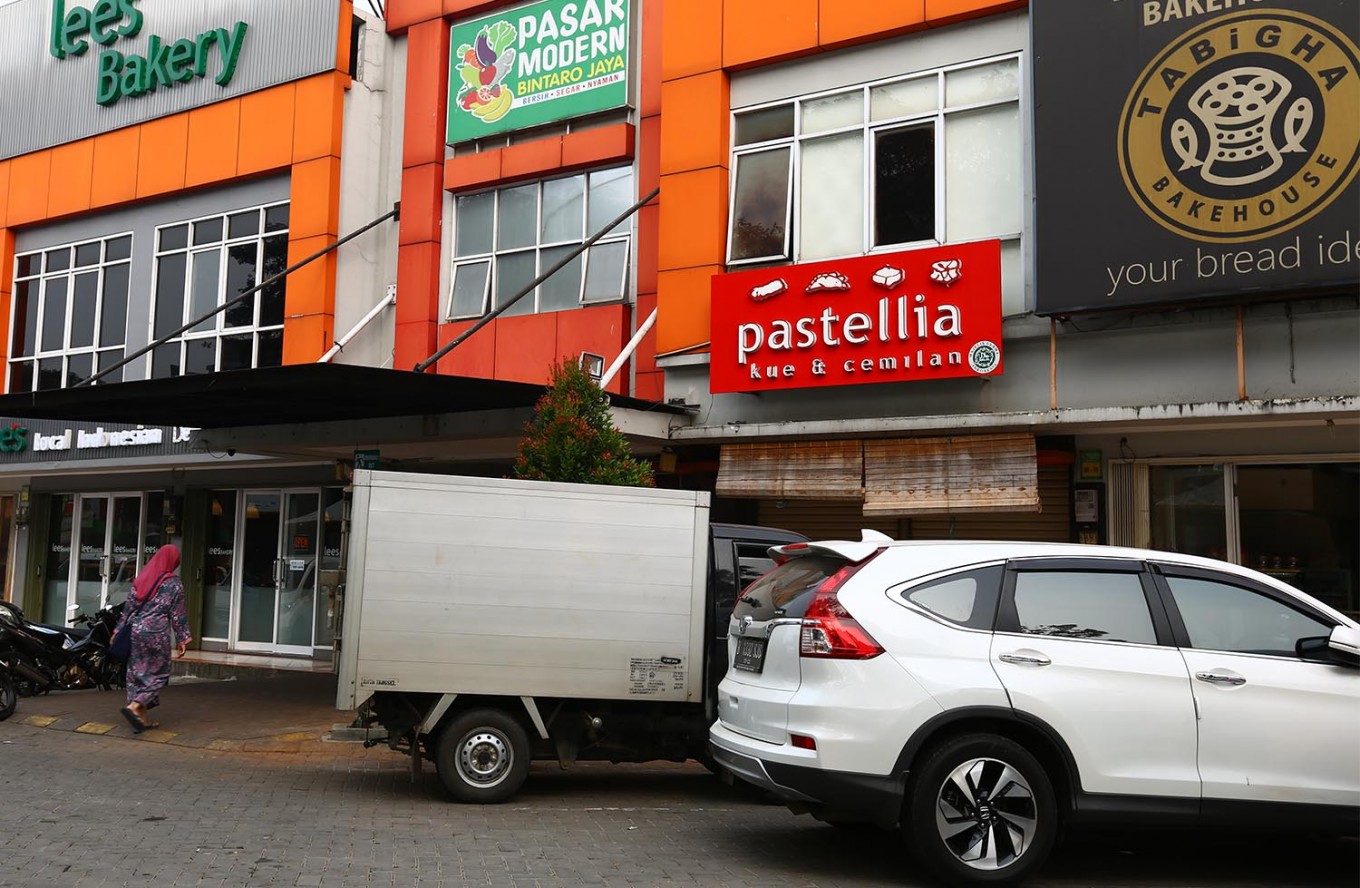 Conveniently situated near the residential areas of Bintaro, the market is a popular shopping hub and can get extremely crowded on the weekends. (JP/Wienda Parwitasari)
Conveniently situated near the residential areas of Bintaro, the market is a popular shopping hub and can get extremely crowded on the weekends. (JP/Wienda Parwitasari)
L
ocated in South Tangerang, Banten, Pasar Modern Bintaro (Bintaro Modern Market) is a neatly organized traditional farmers' market-style shopping complex and culinary center that offers a wide range of traditional Indonesian foods from different regions.
Conveniently situated near the residential areas of Bintaro, the market is a popular shopping hub and can get extremely crowded on the weekends.
How to get there
As it is located just outside Jakarta, one of the most convenient ways to reach Pasar Modern Bintaro is by train. The closest train station is Jurangmangu Station.
From there, the journey takes another 30 minutes on foot, or alternatively app-based ride hailing transport can be used to travel the remaining 2 kilometers to the market.
What to wear
As a farmers' market, albeit with a modern layout, it is best to wear casual clothing, such as jeans, t-shirt and comfortable shoes.
What to buy
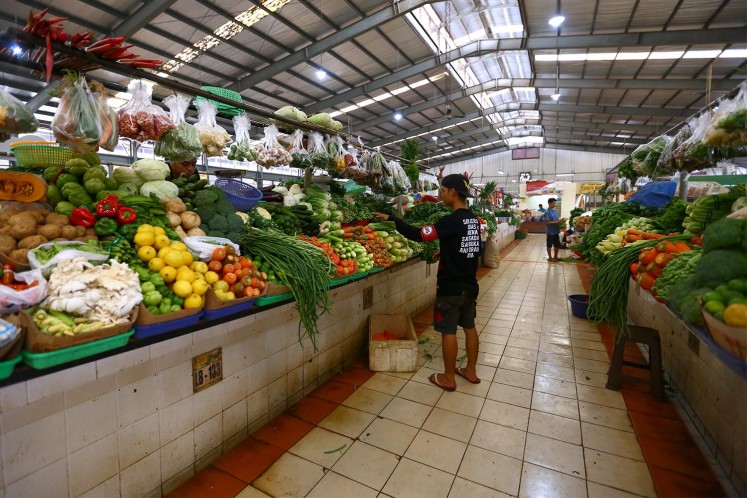
The market is a well-organized complex that houses a wide range of items for the household, as well as basic daily needs.
Fresh produce, meat, poultry and seafood are available in abundance in the market hall, making it a convenient one-stop shop for groceries. Cured foods can also be easily found, such as different types of salted fish, squid and shrimp, with prices starting at Rp 10,000 (less than US$1) per 100 grams.
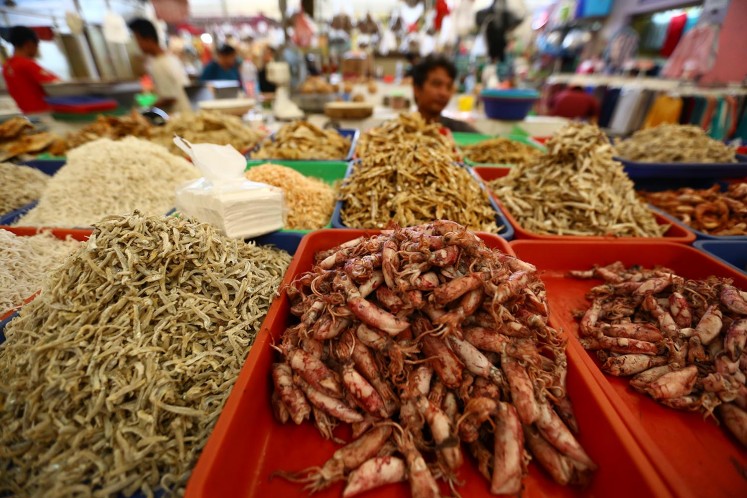
Numerous market stalls also sell condiments and other necessary ingredients for cooking, such as spices, butter, soy sauces and chilies.
There is also Toko-Organik.com, which sells organic foods at a stall inside the market hall, as well as a store outside the hall. In addition to organic fruits and vegetables, there are also health foods, such as imported almond meal and roasted almonds, which cost Rp 100,000 (US$20.7) for 300 grams.
Aside from foods, there are also shops and stalls that sell a wide range of homeware and household necessities, such as cookware, cleaning tools, as well as house decor, wallpaper and curtains.
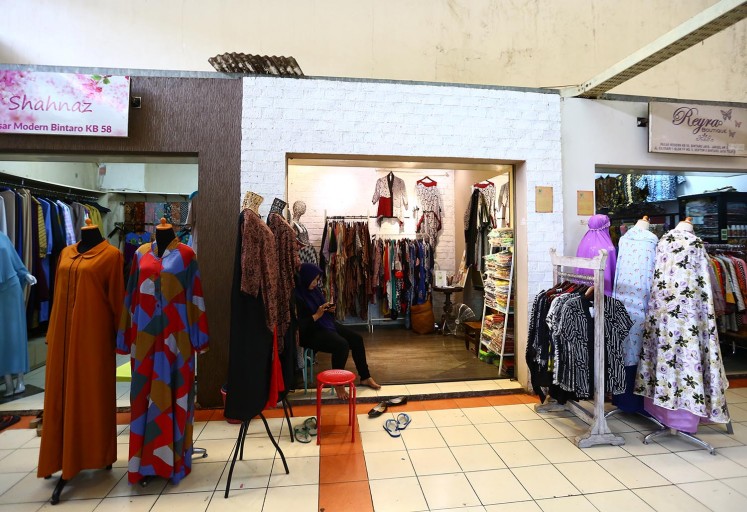
Clothing, including Muslim clothing, is also available, with prices ranging from Rp 150,000 to Rp 500,000 for skirts, shirts and dresses. For kids, there are also toy stores offering a wide range of items, including dolls, car toys and balloons.
For special purchases, the market hall is also home to several jewelry stores, selling an array of accessories made of gold, silver and precious stones.
Read also: Jakpost guide to Pasar Modern BSD City
What to eat
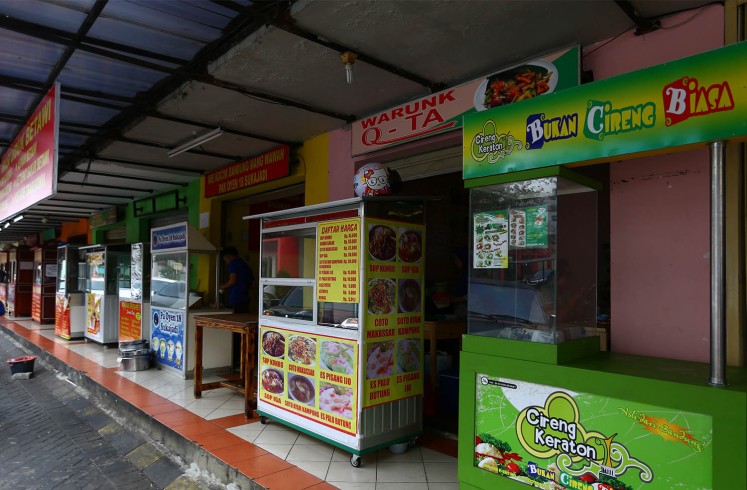
In addition to being a convenient grocery-shopping destination, the market also hosts a plethora of food vendors, with light snacks, coffee and a wide range of meals readily available.
One of the most popular establishments is Pastellia, which welcomes guests entering by the north door of the market. Its most popular dish is siomay, a generously sized fish dumpling that can be served with peanut sauce.
For something sweet, head on over to try Ibu Tati's kue lumpur, a soft and custard-like bite of cake that comes in five different flavors, namely coconut, jackfruit, pumpkin, yam and pandan. Each cake costs Rp 4,000. Additionally Ibu Tati also offers other traditional sweets such as dadar gulung (rolled coconut crepes) and klepon (sweet rice balls stuffed with palm sugar).
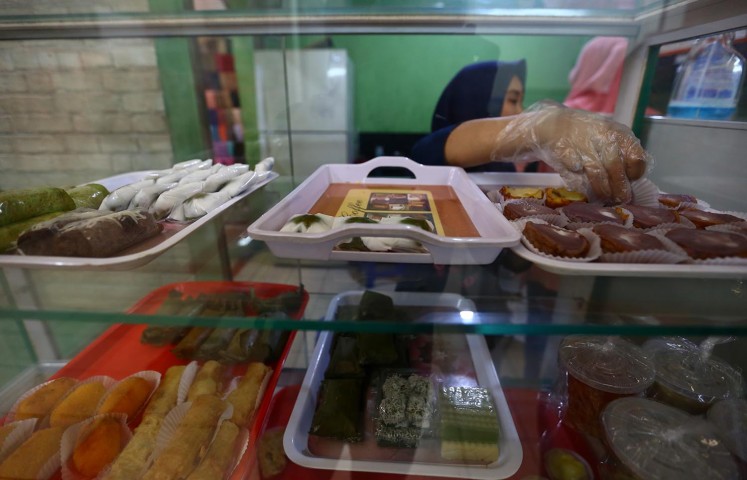
Several coffee shops can also be found in the market complex, such as Mata Kopi, which sells its signature es kopi susu pasar (market iced milk coffee) for Rp 20,000.
To satiate your hunger, you can find restaurants selling a wide variety of Indonesian cuisine from the country’s many different regions. Among them is Pecel Pincuk Ibu Ida, located near the south entrance.
Pecel is a local dish from East Java that consists of veggies drenched in a sweet and spicy peanut sauce with a side of peyek (deep-fried savory Javanese cracker with peanuts). Diners can also choose to add side dishes, such as fried chicken, perkedel kentang (fried potato patties) and quail eggs skewers.
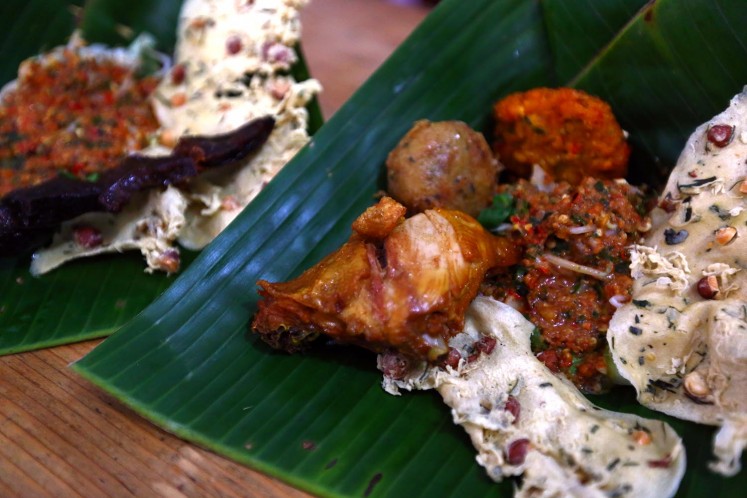
Uniquely, the dish is served on a bed of banana leaves on a bamboo pincuk (dome-shaped bamboo plate). A basic dish of pecel starts at Rp 14,000, with side dishes starting from 3,500. Guests can also take home a generous bowl of pecel sauce for Rp 60,000, which can be kept for about two months when stored in the refrigerator.
For a different choice, there is also Waroeng Garang Asem, which serves the Central Javanese dish garang asem (sour and spicy soup) with either chicken or beef. Other delicacies include gongso (spicy stir-fry style) tripe or tongue.
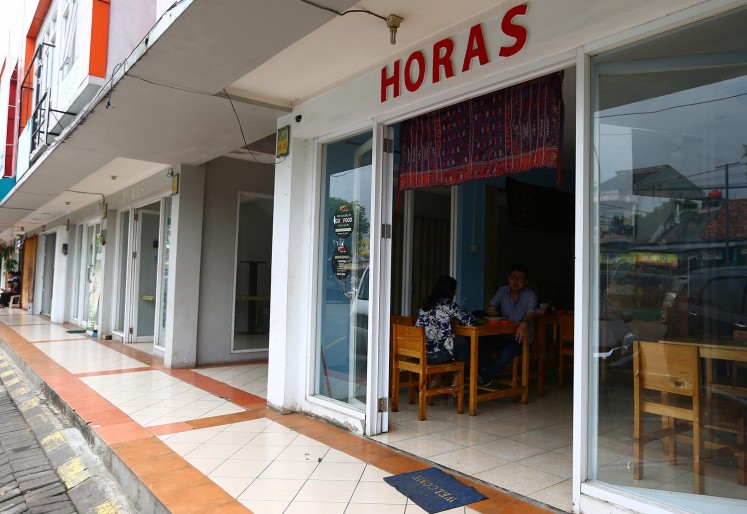
Batak cuisine is also available, with the restaurant Horas offering traditional North Sumatran barbecue pork and saksang (a Batak dish made from minced pork stewed in blood, coconut milk and spices).
Tips
- It is recommended to visit early in the morning when all the shops are open and snacks and traditional sweets are still available.
- Note that some shops close after 12 p.m.
- Beware of your belongings, especially in crowded areas. (kes)






